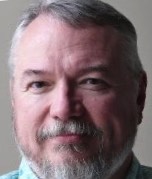Coraid Is Back
With SouthSuite
This is a Press Release edited by StorageNewsletter.com on June 23, 2017 at 2:20 pm This article was posted on June 5, 2017 by Brantley Coile, founder and CEO, SouthSuite, Inc., founder of former Coraid, Inc. for which he served as CTO until 2013.
This article was posted on June 5, 2017 by Brantley Coile, founder and CEO, SouthSuite, Inc., founder of former Coraid, Inc. for which he served as CTO until 2013.
Now Coraid is Really Back-Hardware and All
It’s been a long and winding road.
The Coraid Story is an interesting one, full of twists and turns. And while the past 15-plus years have seemed at times like a long and winding road, and not one where you could keep the top down for very long, since that song has already been written I’ll just give you a few high (and low) lights and then get to the news-new hardware.
When I first sat down and started mulling over the company and its business that I now refer to as ‘classic Coraid,’ I had three goals for a new breed of storage array: I wanted these products to be faster, simpler, and cheaper than the current storage market.
These straightforward goals were the starting point for what would eventually become the Coraid EtherDrive SRX and VSX. This efficient software, wrapped in commodity hardware, ended up selling over 10,000 units, aiding 1,700 organizations across the globe.

From school systems to balloons floating over the South Pole, my team and I bucked then-current storage trends in pursuit of my ‘faster-simpler-cheaper’ standard.
These Etherdrive arrays met all my goals thanks in large part to the ATA-over-Ethernet (AoE) protocol:
- AoE runs on raw Ethernet with no bloated TCP overhead, so it’s wildly fast. Many people are surprised to learn that you can run something other than TCP on Ethernet, but it has a host of benefits because it cuts the number of packets on the network in half.
- Using Ethernet is cheap thanks to simple economics. When supply is up, prices are low. And there is a massive supply of Ethernet out there.
- It’s easy to learn. We’re all familiar with Ethernet and local disks, and that’s pretty much what AoE does: turns your storage array into one big local disk using Ethernet. New users don’t have to learn much to jump in.
And so Coraid AoE storage chugged along until things started to slide off the rails in 2010. By 2015, the company behind EtherDrive was bankrupt. Two years, four months, and four days after the old Coraid Inc. finally closed its doors, a brand-new version of Coraid EtherDrive SRX, complete with hardware, shipped to a data center in need of more storage. It’s a good feeling to see the new Coraid logo on packing tape securing yet another box full of high-quality hardware and headed to a customer.
Introducing H-Series Hardware
Coraid EtherDrive SRX hardware now comes in four options:
- h3641: a 36-bay unit for a lot of storage, good performance, at $2,995, plus software and extra NICs.
- h2421: a platform to run SSDs at high performance. It’s a two rack unit model that holds 24 2.5-inch disks.
- h2441: a 24-bay, four rack mount for fast 3.5-inch disk arrays.
- h1631: an inexpensive upgrade for those who have classic Coraid hardware. Just move the drives from your older model into the newer for an instant and inexpensive hardware refresh and performance bump.
Improved Software
The h-series are simple Supermicro chassis, but we’ve refreshed the storage array with a new release, the SRX 8.1. We’ve even upgraded the EtherDrive HBA drivers for VMware 6.0 and 6.5, Windows Server, and the major Linux distros.
Among the changes we made to SRX 8.1, support for Advanced Format drives (512e) and email/text remote logging are at the top of the list.
I’ve spent time making sure the new software works for older, classic Coraid hardware too. We can support the very old classic Coraid hardware, such as the SR1521s, but to get all the newest software features, users need to upgrade the hardware.
The major releases, however, work on all the SRX units: SRX2800, SRX3200, SRX3500, SRX4200, SRX6200, and SRX6300. I’ve made sure you can upgrade from your old SRX 6 or SRX 7 software to our new SRX 8.
Coraid is Well and Back
When Coraid, – the company rather than the storage product – derailed in January 2015, it was pretty clear why: venture funding.
The leadership changes brought about by VC funding caused the company to lose sight of the simple, faster, cheaper mentality that made EtherDrive storage so good. Coraid started playing the IPO game and outspent sales and funding in a few short years, squandering time and resources on an OS switch that caused sales to plummet.
Shortly after its closing I was able to acquire the IP for the classic Coraid SRX and VSX.
Surprisingly, in April of 2016 I was also able to acquire the Coraid trademark, domain name, and the rest of the classic Coraid technology. Now Coraid-this time as a brand, once again shipping hardware.
Coraid is gone for good, but I’ve resurrected Coraid products in my new company, SouthSuite. This time, we won’t fall for the same VC pitfalls as we did in the past. We’re in it for the long haul.
So, Coraid is back, hardware and all. Same product name. New model numbers. Support for all. And while it’s not yet time to put the top down, we’re looking forward to what lies ahead for Coraid.
Read also:
Start-up SouthSuite Improves Coraid Software
Format 4K drive support, simplified command sets, and option to expand Coraid systems using commodity hardware
2016.05.25 | Press Release












 Subscribe to our free daily newsletter
Subscribe to our free daily newsletter
